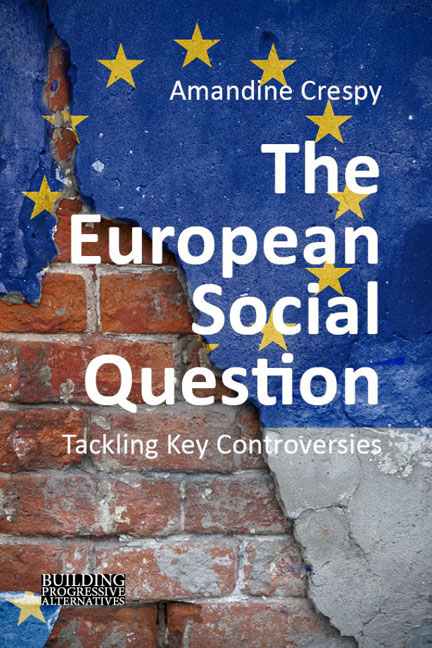Book contents
- Frontmatter
- Contents
- Acknowledgements
- Abbreviations and acronyms
- Dedication
- Introduction: “Social Europe” – irrelevant, catching up or dangerous?
- 1 What is the European social question?
- 2 Is the EU a key player in addressing social issues?
- 3 Are socially minded actors too weak in EU policy-making?
- 4 Is European social regulation a thing of the past?
- 5 Does liberalization undermine social cohesion?
- 6 Does the European social dialogue really protect European workers?
- 7 Does soft coordination support welfare states?
- 8 Is redistribution unconditional?
- 9 Is the EU fit for the social challenges of the twenty-first century?
- Conclusion: from the social question to the democratic question
- Index of CJEU judgments
- References
- Index
6 - Does the European social dialogue really protect European workers?
Published online by Cambridge University Press: 20 December 2023
- Frontmatter
- Contents
- Acknowledgements
- Abbreviations and acronyms
- Dedication
- Introduction: “Social Europe” – irrelevant, catching up or dangerous?
- 1 What is the European social question?
- 2 Is the EU a key player in addressing social issues?
- 3 Are socially minded actors too weak in EU policy-making?
- 4 Is European social regulation a thing of the past?
- 5 Does liberalization undermine social cohesion?
- 6 Does the European social dialogue really protect European workers?
- 7 Does soft coordination support welfare states?
- 8 Is redistribution unconditional?
- 9 Is the EU fit for the social challenges of the twenty-first century?
- Conclusion: from the social question to the democratic question
- Index of CJEU judgments
- References
- Index
Summary
The European social dialogue is arguably one of the most emblematic aspects of the EU's role in the field of socio-economic governance. Originally, in the late 1980s, the aim was to foster negotiations between employers and trade union organizations at the supranational level in an attempt to replicate the neo-corporatist logic shaping industrial relations in continental and northern Europe (see Box 6.1). In these countries, the regulation of working conditions through collective agreements concluded independently between employers and trade unions is the cornerstone of the social model. From a Polanyian perspective (see Chapter 1), therefore, the purpose of the European social dialogue is to re-embed the economy in social relations in a way that reconciles economic efficiency and social justice. As will be explained in this chapter, however, the European social dialogue is very different from neo-corporatism at the national level.
NEO-CORPORATISM
Corporatism refers to the grouping of trades, or occupational and social groups, in institutions in order to defend their interests, particularly vis-à-vis political authorities. Corporatism has a long European tradition with roots in the medi¬eval trade guilds and the growth of capitalism.
Beginning in the late 1970s, neo-corporatism, theorized among others by Philippe Schmitter, aims to explain the structure of interest representation in con¬temporary democracies, specifically from a socio-economic viewpoint. Whereas pluralism assumes the competition between a multitude of interest groups and organizations attempting to influence public policies, neo-corporatism focuses on the core interests – workers and employers – and their relations with the state. Neo-corporatism is thus based on a monopoly of representation by a limited number of actors in specific fields of activity. Bipartite (between social partners) and tripartite relations (between employers, trade unions and the state) are institutionalized through concertation, negotiation and political trading mechanisms. These practices led to the regulation of working conditions and pay at the company, sectoral and cross-industry level.
Thus, neo-corporatism aims to regulate the conflicts between capital and labour and, by doing so, ensure the stability of the capitalist order and the performance of the production system in a context of international competition.
- Type
- Chapter
- Information
- The European Social QuestionTackling Key Controversies, pp. 113 - 134Publisher: Agenda PublishingPrint publication year: 2022



